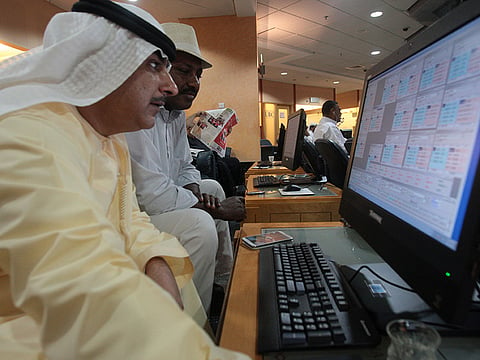What should UAE investors do as Trump tariffs upend global markets?
Trump’s new tariffs requires investors to discard strategies they have been used to

In the words of David Bowie and Queen: ‘Under pressure!’
In response to the long awaited US tariff policies, the markets fell, of course. They fell in unison and they fell like they had not fallen in years, took a pause, and then fell some more.
As analysts scramble to update their forecasts, those who had long stated that Western markets (and real estate) were long overvalued pointed to the phenomena of mean reversion. But even as we wait for the saga to unfold, there is another casualty here: a reversal of US dollar strength that had appreciated by 35% against the world basket of currencies since 2014.
Mean reversion applies to all asset classes, and should we be entering into another era of structural dollar weakness, it implies a greater amount of money flows to foreign markets, especially emerging ones.
As relative valuation premiums get arbitraged away somewhat - one analyst referred to the recent plunge as the ‘moron risk premium’ - what is evident is that inflation is the boogeyman that will be here to stay for longer.
Astonishingly, there have been analysts who forecast another era of quantitative easing to spark off another asset boom. (This is akin to saying that the Lehman crash of 2007 that led to the housing crash sparked off the biggest asset boom in history. But this is the upside down world of narratives that we now live in).
We know that asset prices do not grow in a straight line, and that when corrections take place, the adjustment period is ugly. Tariffs are ultimately a tax but they could well be used as negotiation tools.
Right now, its impact is too early to tell, but what we do know is that markets will mean revert every single time that they drift above or below their replacement value. It will not be immediate and it is not mechanical, but it is guaranteed, and investors that have kept portfolios active are now poised to capitalize on falling prices.
Another look at UAE’s inflation-proof stocks
Higher inflation for the UAE means a greater impact on inflation-proof assets and fortunately there are quite a few in the capital markets, from Salik to Parkin or Dubai Taxi.
Inflows to the UAE and the GCC will increase alongside other emerging markets, albeit in selective sectors, and it will have the counterintuitive impact of actually increasing the quality and valuations of new IPOs. As well as increasing liquidity in the existing markets for business models that make sense (devoid of the hype that normally accompanies casino-age type thinking).
For those who argue for momentum-based ETF investing, the data is clear. During periods of higher inflation, momentum-based (otherwise known as technology stocks) had a negative annualized return of 13.3%.
The reason has as much to do with psychology as it has to do with the fundamentals of investing - value investors tend to be patient by necessity, momentum investors do not.
If their metaphorical faces get ripped off in the stock market, they might not return or stick around. And so, the overweight positions in the US markets will also correct, as portfolios start to look abroad, to make sense of the myriad scenarios in this new world.
It may also be true that the policies are reversed and this ends up being another blip on the radar, hard enough as it is to comprehend that. That in a nutshell is why investors who have chased capital gains over cash flows have to understand: these were the most advertised policies in the history of the world, with advance notice being given again and again.
Any ‘efficient’ market would have discounted this well in advance. And yet, here we are - pressure.




